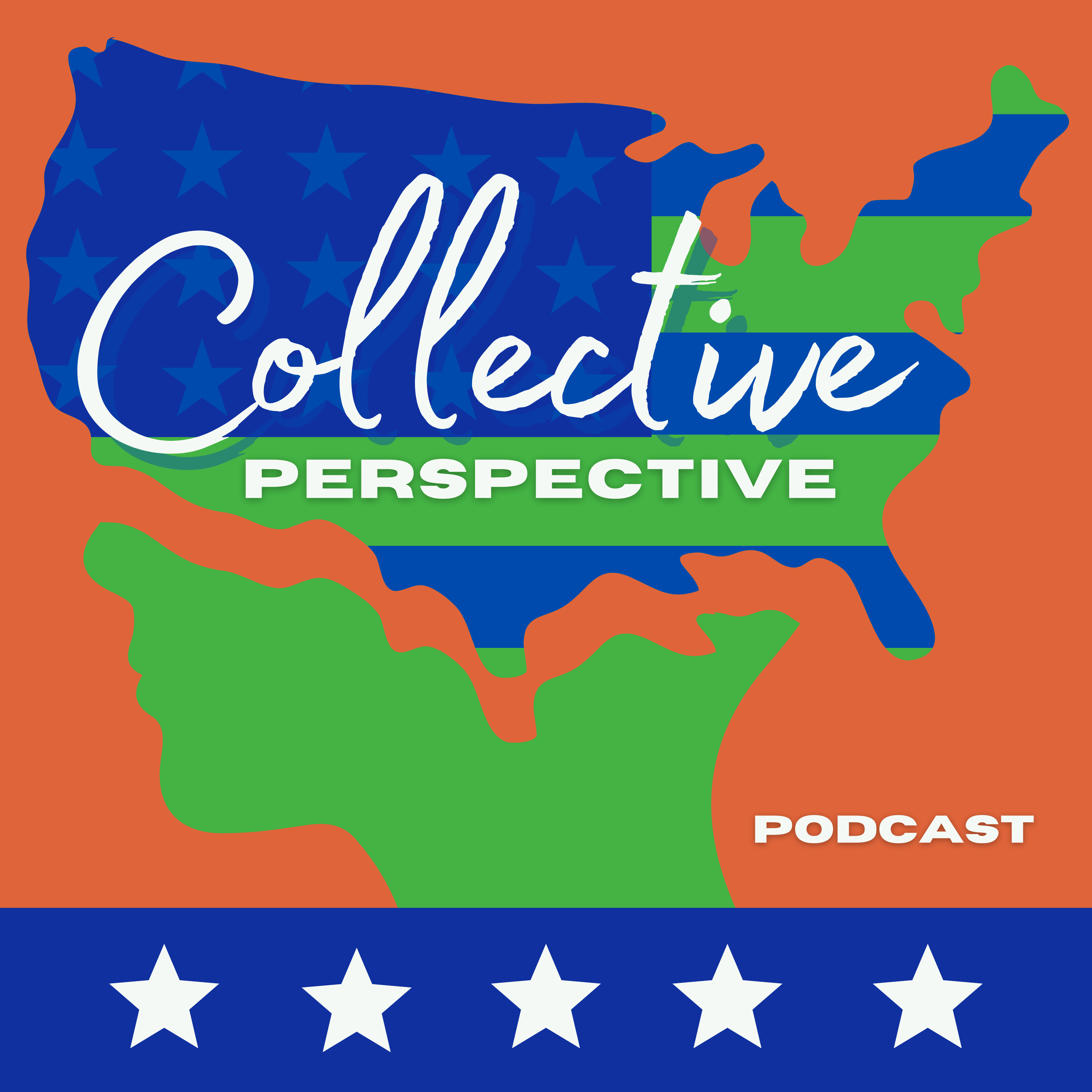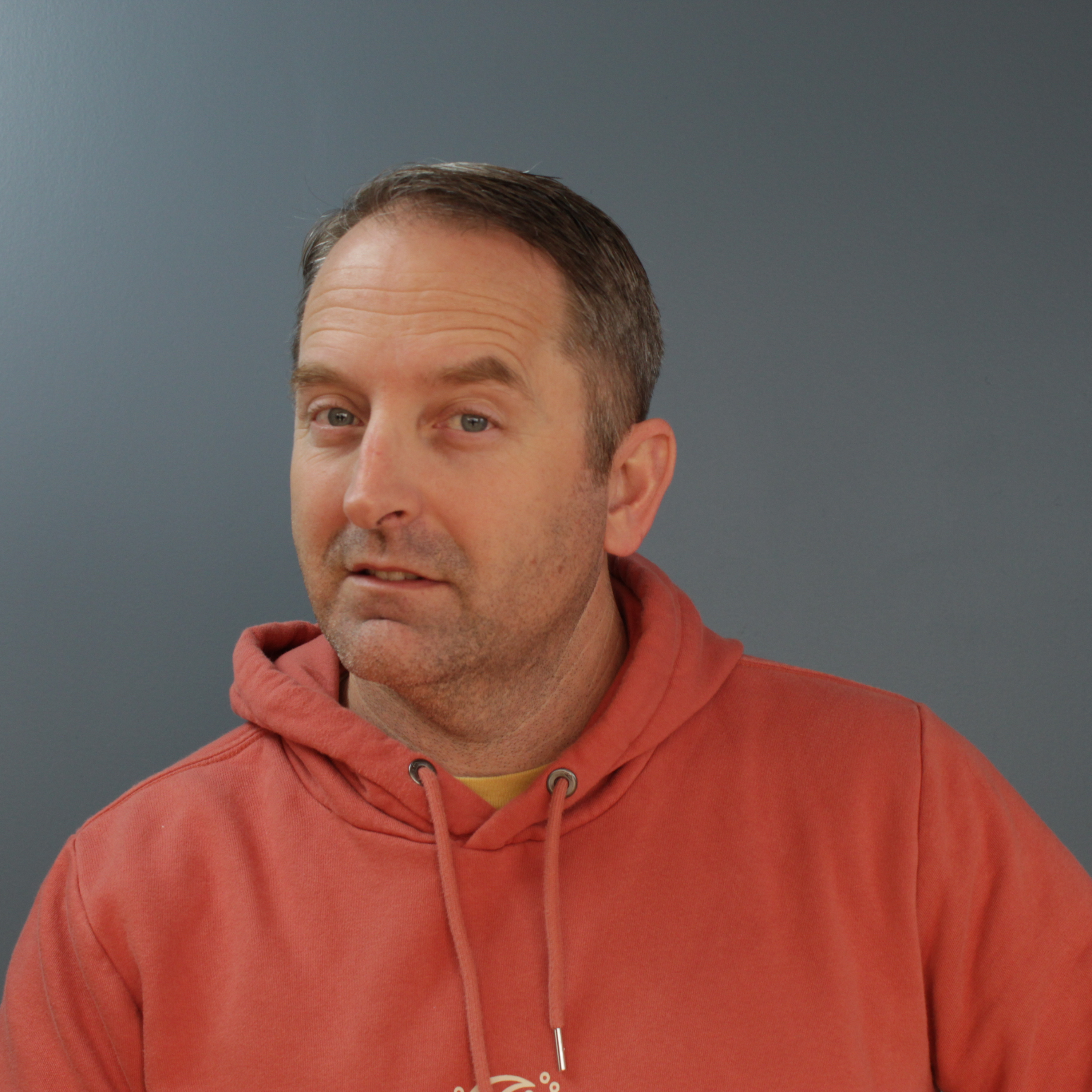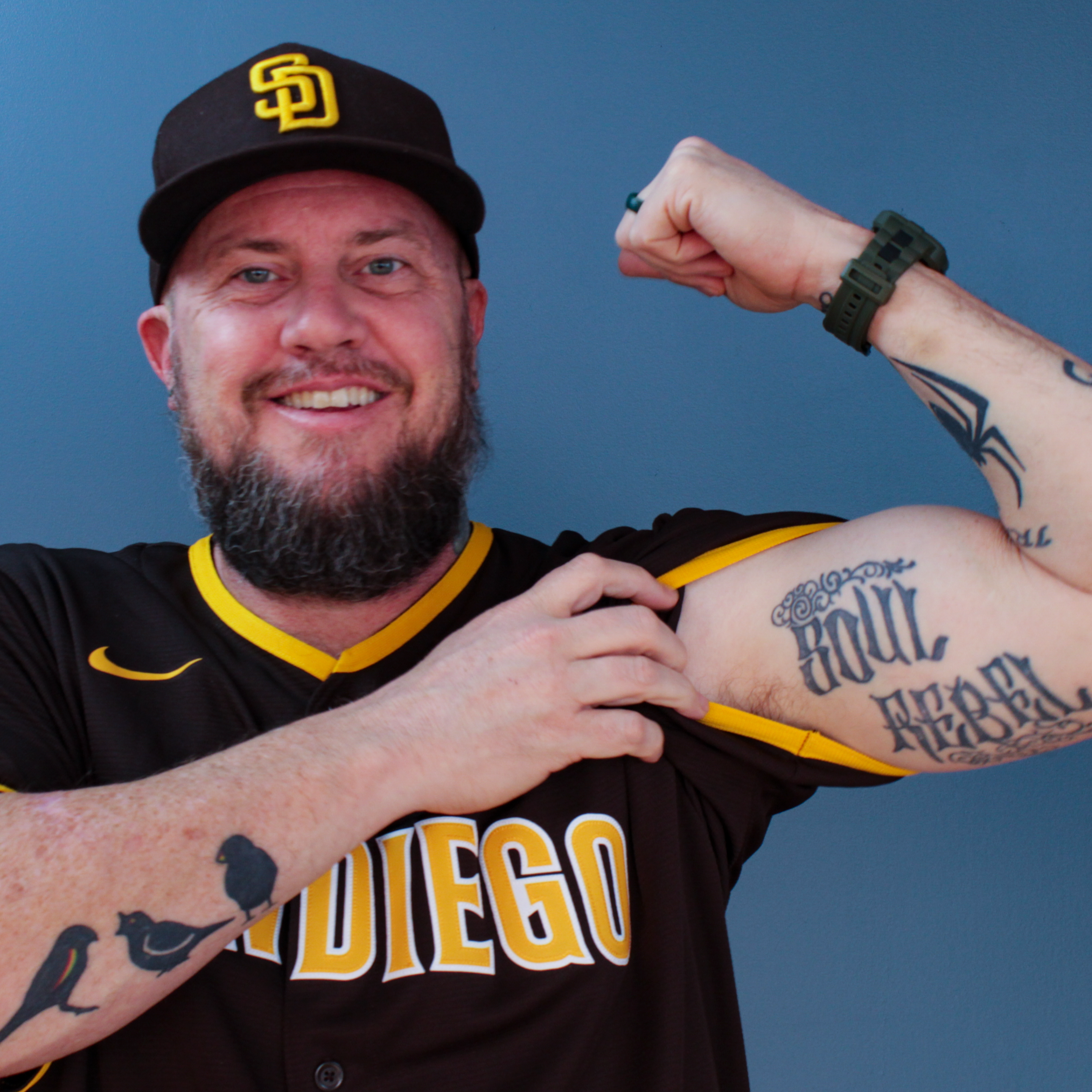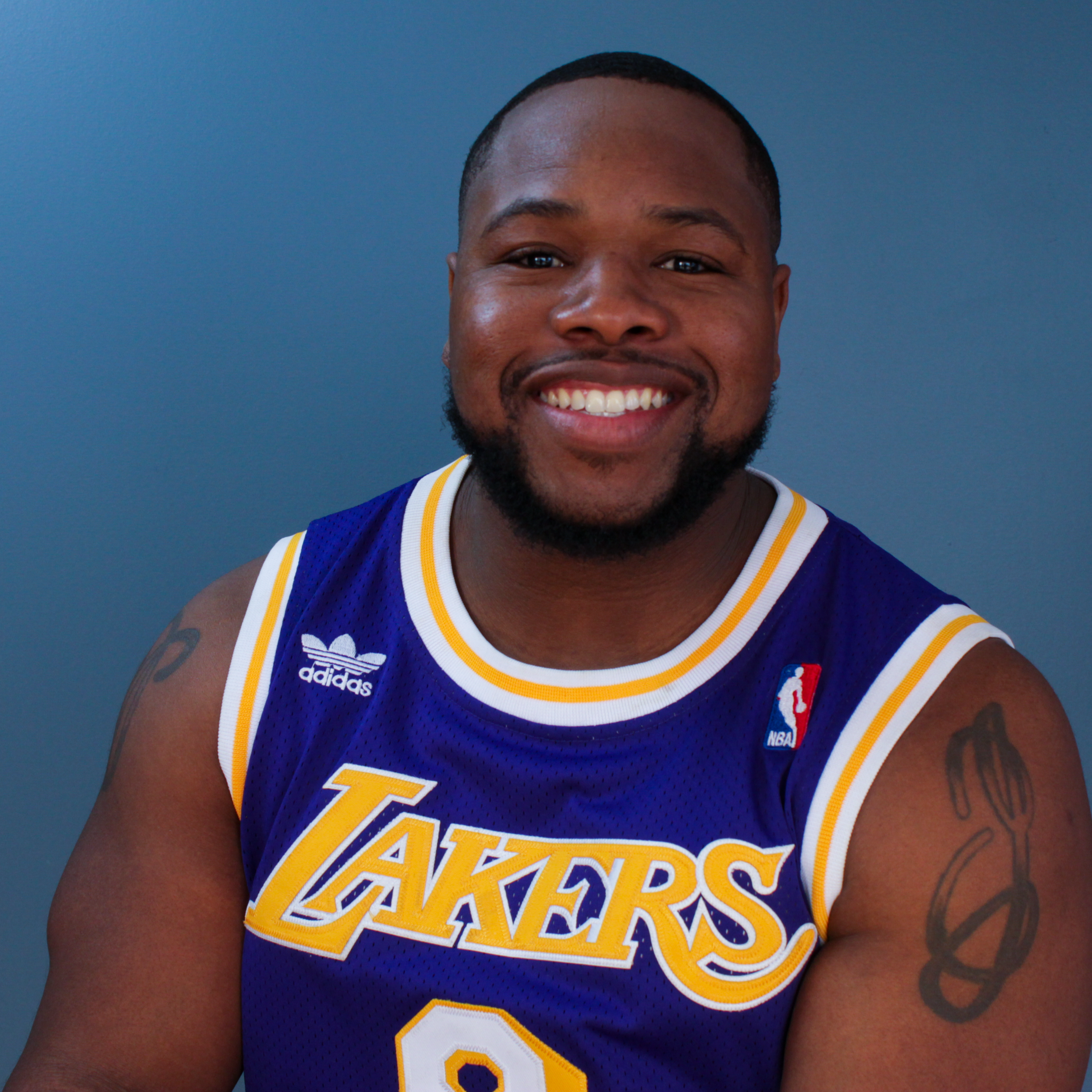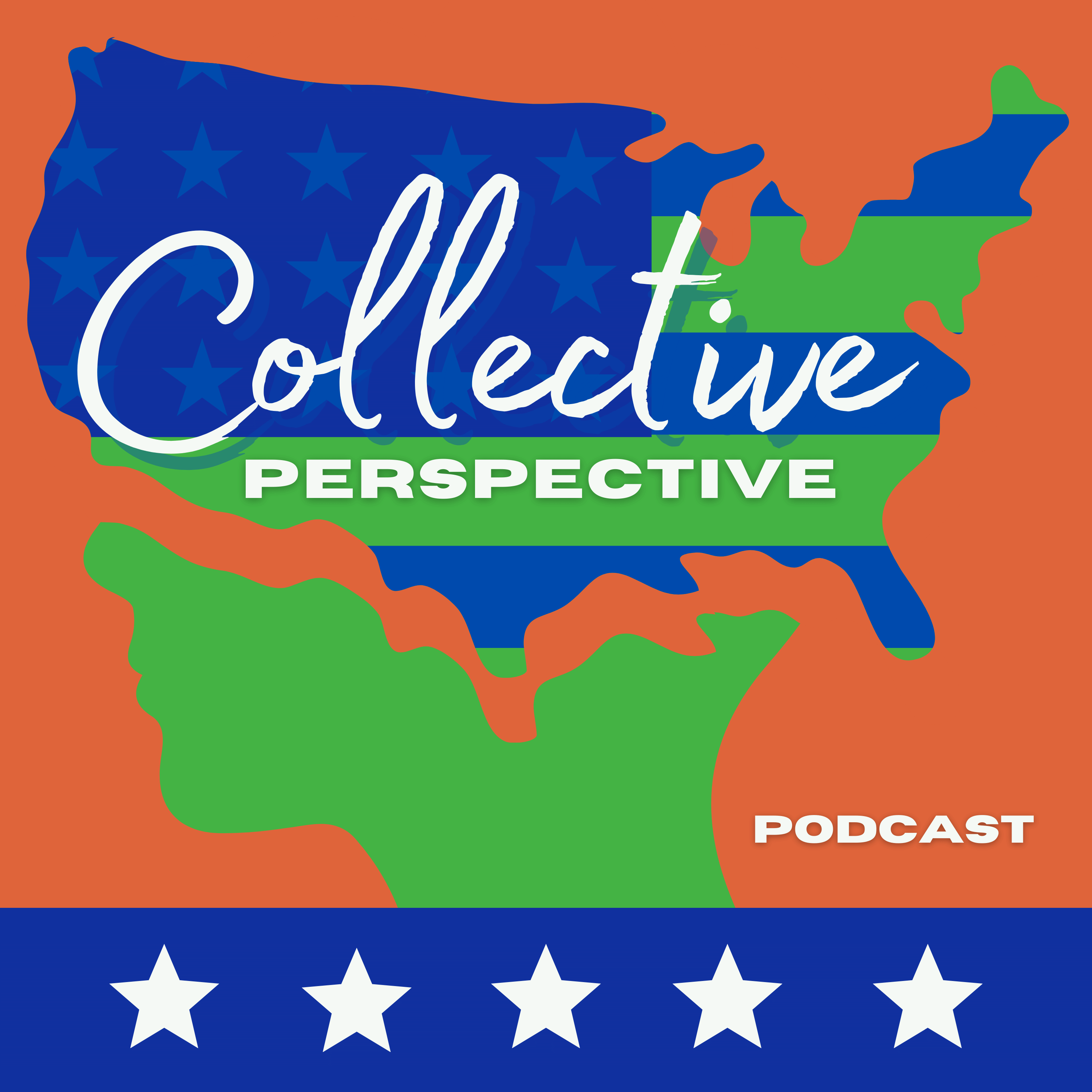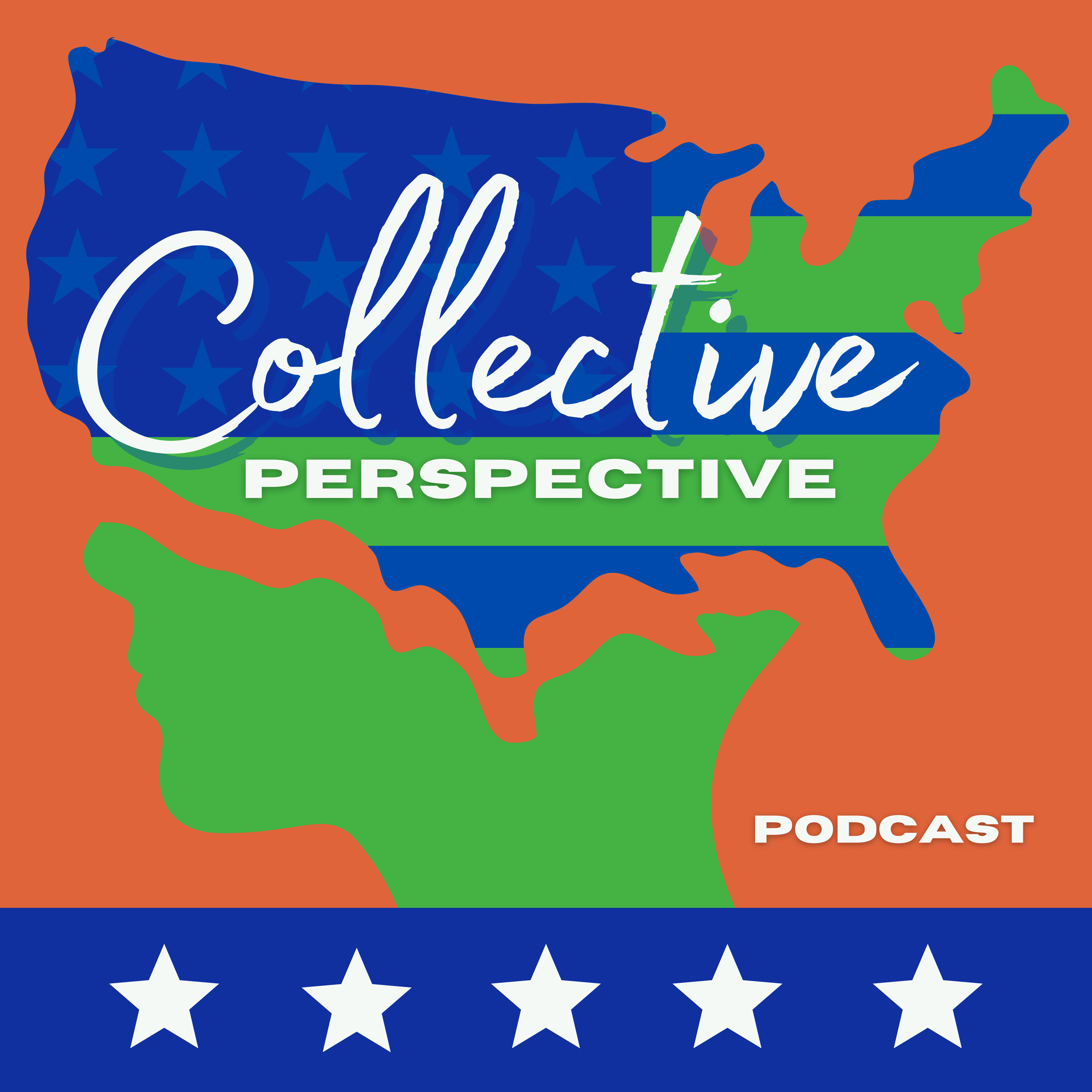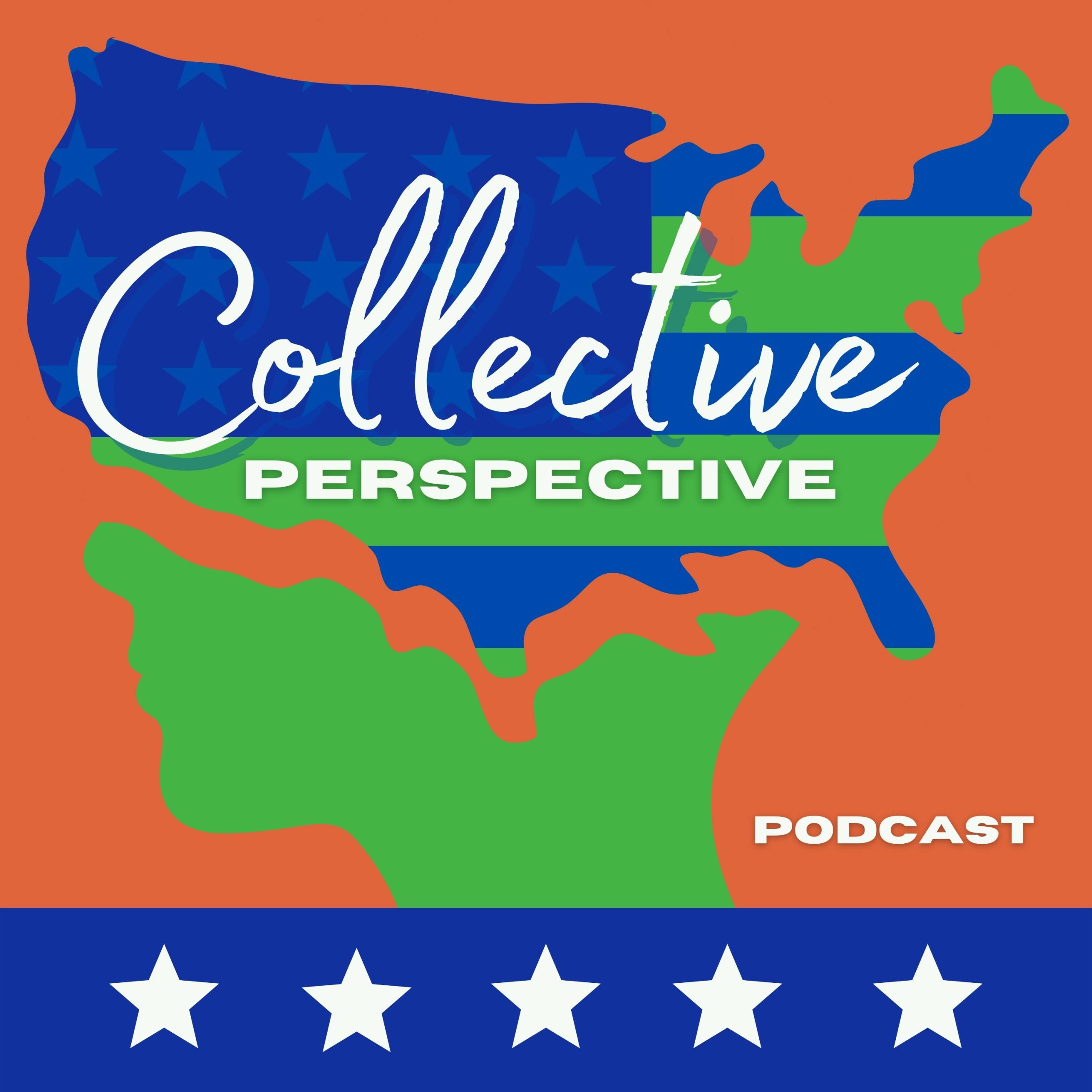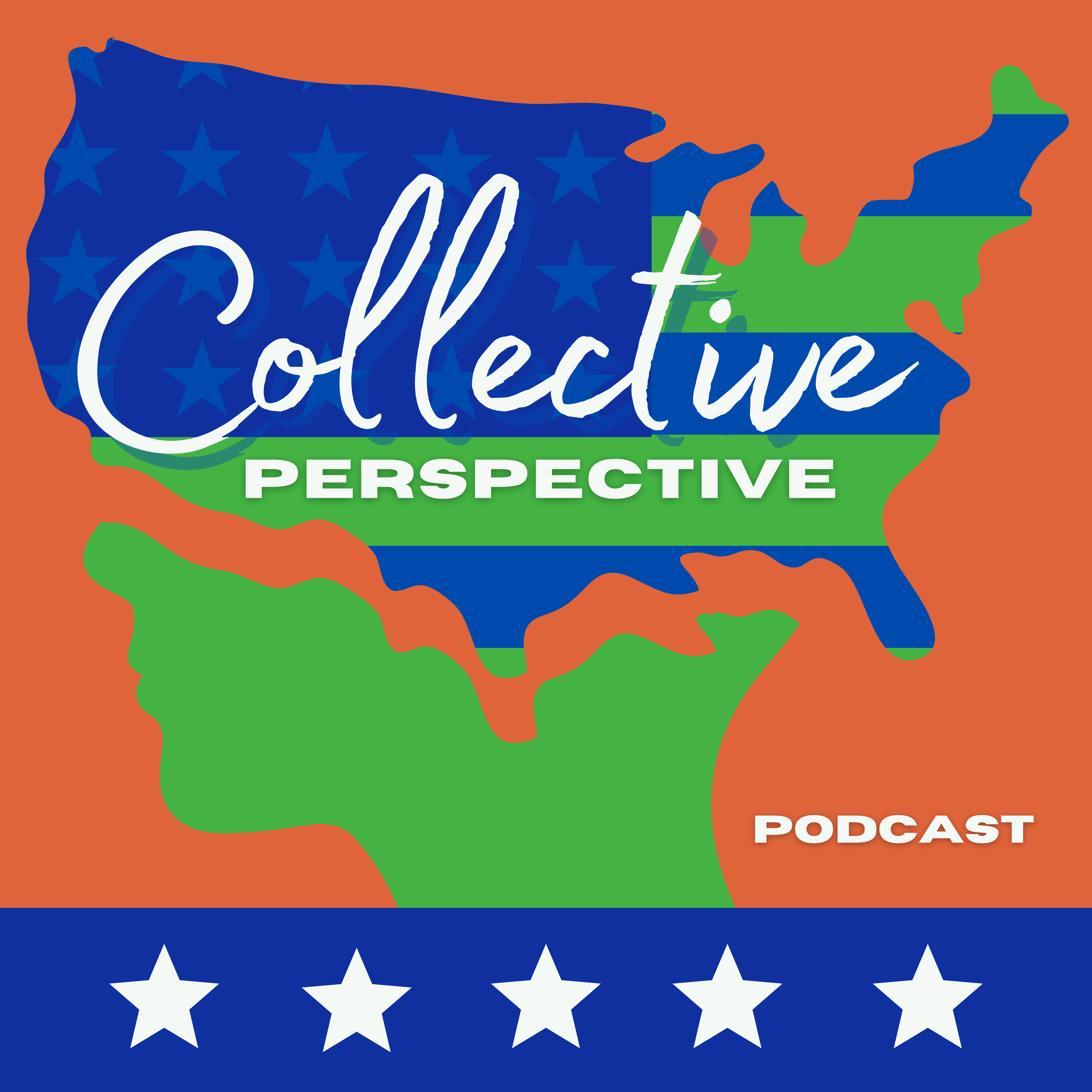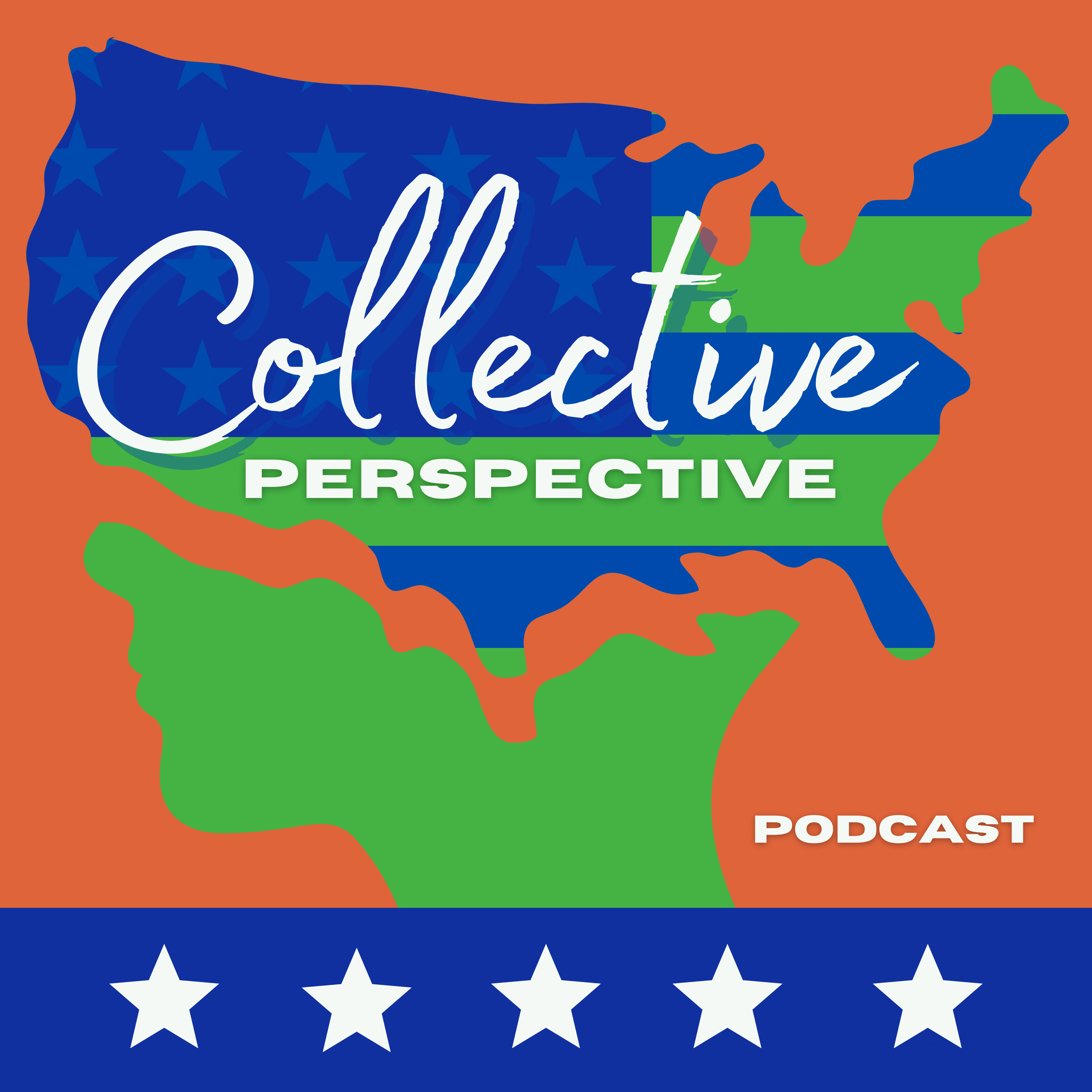Episode Transcript
This isn't just a podcast, it's a reminder. A reminder of what makes America Stronger isn't the headline or a hashtag. It's people from the ones building our homes to the ones rebuilding their lives, veterans, tradesmen, neighbors and volunteers, real people doing real things. Here we find common ground first, and then we work on our differences.
This is the collective perspective podcast where purpose, people, and progress. Hey everybody. Welcome back to the collective perspective. My name is Jeff and I'm here with my buddy Travis. Welcome back, everybody. Good to be here. And today we're gonna talk about the two most pressing, yet under-discussed threats to our wellbeing in the modern USA, and that is burnout and digital overload.
I think that's a very big topic and very, uh, relevant to what's going on in the world today. I think it goes back to childhood. I was born in the seventies, not to date myself, but my mom was a stay at home mom. I know your upbringing was a little bit different. Yep. But, um, it was still the time and the majority of families were one income families.
Yes. My family, my, that's how I grew up. My mom was a single mom, uh, with, uh, two kids. And yeah, it was, it was a, it was a different time back then. Uh, it wasn't, it wasn't always easy, but we made it through. There was no cell phones or computers, anything like that, just started to get in TV and, um, maybe even, um, uh, digital.
Tv, uh, I think of what Pong I, I actually remember going over to like a family friend's house and they had an Atari set up and we would play Pong or Donkey Kong or something like that. Frogger or, uh, what was it? Uh, the Jungle, one Jungle Gym or, uh, swinging on the Vines. I can't remember the name of that one.
George of the Jungle? No. Oh. Uh, but the old, old heads out there will know what that game that was. Oh, I can't, I can't remember it. It was in Jumanji, uh, with, um, the, the remake of Jumanji. There was one pitfall. That's it. Oh, pitfall. Okay. Yeah, I was into video games too. That was really the only escape, other than, I mean, we still, my family and I had Pac-Man tournaments on Atari.
Well, you know, so it was a family of. Thing back then. E even, even still, uh, I think in the, in the mid to late eighties when Nintendo came out, you know, it was all, uh, you all, all I wanted to do was play the, uh, the, the surf game or the BMX game because those were the cool games of the time. Uh, but whenever I'd go over to my dad's number one question, is it raining outside?
I said, no. What are you doing inside? Uh, outside was where kids were to be. We always were outside. My, my sisters always tell dust from Dale till Dawn, and we weren't inside. We were outside playing whatever it was, using our ation from dawn to dusk from dus till dawn. Oh, that's a movie. That's a movie. That was a good movie though.
Uh. So I remember, I remember having a movie night with the family or uh, going to the drive-in theater. Yeah. And that was fun. Uh, but even game night where we'd sit down the whole night and play different variety of different games and it was togetherness. And I think families back then, and families today are so tied into it, man, I'm just as guilty.
And, um, you know, when it comes to burnout and digital overload, I think they're very well combined together in a lot of aspects because digital overload causes burnout. I, I think it's a leading, uh, contributor to burnout. Absolutely. We get inundated and, uh, all we do many times when we're not being productive somewhere else, we're looking at our devices.
I. Yeah, that's, that's kind of where I see things these days. And you know what I love about our podcast the most, Travis, is that we learn from it. Absolutely. I, I think if anybody watches our episodes, you'll begin to learn from what we're talking about. But most importantly, if anything, Travis and I are learning so you either can learn from us and what we're talking about.
We do welcome you to be a part of it. So we do want to be interactive. We will answer questions, um, in the comments below, so please do that. Man, I have to be a, uh, transparent about something I usually am, but maybe sometimes a little too much. But I just realized that, and this is a, an important thing for me is that, and I have an opportunity to to, to fix it too.
Yeah, every night my son and I, well my wife and my daughter go to bed early and there's about an hour, hour and a half gap where it's just my son and I. And you know what we do? He sits on one side of the couch with his device and I sit on the couch with my device and we've gotten in this routine of where we just do that.
And then, Hey, it's nine 30, Gavin, you gotta go to bed. Do you know how horrible I feel just realizing that, oh my God, I've noticed that too. When, when I have my kids, either Logan or my daughter, when they come downstairs and wanna watch a movie or just sit and talk or hang out, we're both on a device. And I said, well, what do you wanna talk?
Oh, I'm good. I'm okay. They just want the I, I think the kids today want that closeness. Not, not necessarily interacting because they're, uh, their, their time seems to be taken on, on the devices a lot, but that closeness, Hey, somebody's there that I know, this person cares for me. I'm safe here. Well, I mean, there has to be something said where just being around someone is, it is comforting, but you're not spending quality time together that way.
You are, but you aren't, you, you're, you're occupying the same space. I you're not necessarily imparting any knowledge or you're not Yeah. It's not a meaningful interaction. It's, you're there, you're not invested in the relationship at all. Right. And I told myself, and I just, you know, preparing for this podcast dawned on me today that, you know what?
I need to do something about it and I need to stick to it. And I think that's one way of beating, beating digital overload, going to more burnout and digital overload. I think they're a lot alike because, um, well, burnout is exactly what it is. You get burned out of something, you can, it can, you can get burned out if your favorite thing.
Um, I think digital overload is, I think it really only pertains to. Your computer or your tv or you're constantly watching sports or you're constantly I'm guilty of it, man. I, I am on my device from the time I wake up to the time I go to bed, I even take a shower with it. But a lot of that, do you take a shower with your phone?
No, I do not. Uh, but a lot of what you do though, I've mistaken it for soap one time. No, I'm just kidding. Just kidding. That's not true. That wouldn't surprise me. No. Um, no, I, I I think that the, uh, the digital overload, yeah, it's, it's just that, it's digital. It's, it's so much information that we're not processing.
And burnout. I think when we hear burnout, we, we talk about that in terms of work and like a work life balance and what you're able to do there. Um, so I, I, I see how they can, they are interconnected because for you, your work is online is digital. You do a lot of stuff with digital media and I. I have to put the computer and work aside.
Um, and then there's entertainment. So there's two different, there's two different aspects too, but, uh, a lot of my work is on the computer, but it's creating something so it's a little bit different. Uh, I am, uh, and I can get burned out and I do get burned out, and we've taken breaks on the podcast. By the way, this is our 50 54th podcast.
53, 54. Well, 53 was, no, 53, excuse me. Yes. 53. So I'd say we're doing pretty good with the, the podcast, whether people are there or not, we hope one day that's our goal. So I think it really comes down to having a work life balance. And this goes to whether you have digital overload or not. Um, burnout is burnout.
If you work too much, I was just telling myself today and the hecticness of my job is that, is that a word? Hecticness? If it is, sure. If it isn't, why not? I just made it up. Um, you can put that in the algorithm, but I was just telling myself today, man, I need some time off. And I think yesterday was a great time, time off yesterday was, um, a holiday.
I won't say which one. But, uh, it was some time off, but, um, I didn't work. It felt good. Yeah, I, I'm kind of going through the burnout myself and me and you have talked about this previously, uh, probably about a month or two ago. Uh, just work life balance was not balanced in my case. I get up early, go to work, and I stay at work all day and come back and it's time for dinner and then bed.
So I was getting burned out and uh, I, I had. Little motivation. I had little empathy, and I work in a healthcare field, so that's, that's common. B burnout is common in, in healthcare, uh, education, tech, industry, service industries. Uh, people get burned out of doing the same thing over and over and then doing it, uh, in a way that's not beneficial to them.
They're, they're being toxic in their own productivity. Well, you work salary. I work salary job. So the always on culture, it, it really starts to take a toll. Uh, I defeat that with two different cell phones. So my, there are some, there's a lot of clients that are mine that I consider friends. So they have my personal cell phone, but.
Also, there's a lot that don't, and I'm able to shut 'em off that way. People may look at me like, ah, you got two phones, man. How, how do you do it? I'm like, it actually makes my life a lot easier because I could leave one, I, I leave my work phone at home and I'm gone for the day. I don't have to worry about those stresses.
It's also unfair to your employer to expect that you answer your emails and your phone twenty four seven a day. They're not really paying for that. Um, and you are by law allowed some time off. Now the salary job kind of gets a little crazy about that, but, so, um, it just depends on the expectations, but there are some high expectations, uh, in this culture.
So burnout, can you identify it? What are some symptoms or what, what would you see that would, uh, help you identify someone as being burnout? Um, I think people become cynical. They become fatigued. Uh, their attitude changes, um, loss of motivation. They seem irritated, stressed out for no reason, but, you know, you can't hold it against them.
Um, everybody gets in that situation or that mindset on occasion. Yeah, I, I think for me, uh, uh, irritability is a big thing. And lack of motivation, like, uh, I'm still in a little bit of a burnout phase. I, before I started this, this position that I'm in now, I would work out every morning before work. Now, I, I've, I've immersed myself in work.
I have lost that time. That I would normally work out in the mornings. Uh, so yeah, I'm not motivated to get up early and do what I was doing before. I could tell you, man, that my job as a salesperson, I don't really see myself as a salesperson as much as I do a solution provider, but my underlining title is salesperson.
And if I'm not providing sales to meet quotas. Uh, the pressure's on and the sad part is, is that I have to start over at ground zero every month. And it's, it really is a, it really is sometimes a, what have you done for me lately? Mentality? Um, I think pro productivity and the respect of healthcare and stuff.
Um, they do look at your numbers and statistics, and they have their expectations too, that that is true. They do. Uh, we have different, you know, federal guidelines and stuff that we have to abide by. So that's, uh, that, that contributes to some of that toxic productivity where it feels like we're reinventing the wheel over and over and over again.
Improper attention or misdirected attention to, uh, the, the end product.
So how do we reset the balance? I. I was thinking about this the other day and the first thing that came to my mind was some type of, uh, media blackout. Yeah. You talked to me this, about this the other day, about, uh, just doing a, a social detox, if you will, or a digital detox even. So if you had the day off and you didn't have your cell phone, what would you do?
Uh, for me. Bike ride, uh, not bike ride, sorry. Uh, surfing, golf or off-roading is what I've been doing lately. I'd like to get into some fishing because I've got a really good fishing partner that I, I, I would like to get out and go fishing with. And, and, and, and again, that's without any device. You have it with you as a, as an emergency.
But you're not checking it when you're out there actually enjoying the activity. I think establishing boundaries would probably be the worst or the hardest, most difficult thing for me. I don't know, man. I, I like going to sleep listening to something, so that kind of takes that out of the equation.
That's why most, uh, Floridians always have a fan on. I do. Uh, besides being really humid, but. Tell me. I'll tell you. I'll tell you what. Whoever's making the fans for Florida, good job. These things go on and they don't come off for years. And they still run. Yeah. But if only they can make one that doesn't collect dust.
Sorry. That would be a, that would be groundbreaking. I need to turn mine off and clean it. So do you. So, uh, um, so starting with, um, electronic holidays. Yeah. Also reclaiming, um,
sorry. Just have to cut that out and pause sir. Pants, keep on riding up.
You next, Logan, clear your throat. I think it kind of, I can think of kind of flawed, killing the flow here. Establish boundaries on your tech. How can we get back into the flow? Better sleep schedule. Yeah, that would work for me. Uh, but you're right though, a better sleep schedule. What time do you go to bed Lately?
I, I've been kind of all over the place going to bed at like, um, sometimes I'd be going. To my bed by like eight, nine, and 10 is the main. But what time do you go to sleep? I don't know. I don't check the time when I fall asleep. Okay.
How long before you go to bed do you turn off the devices? Because I think that's, that was, I listened to it, going to sleep, but that was part of, well, so listening to it and looking at it are two different things. So for the digital or tech holiday, or Tech Sabbath, if you will, uh, I think there's literature out there that says that the blue light from the screens actually, uh, messes with the circadian rhythm.
So turning that light off. Well before an hour or two hours before you go to bed will help you get better. Sleep hygiene, help you sleep better through the night. I mean, to be a hundred percent honest with you, I, with the CPAP machine, I get great sleep. Um, it helps me. I, I stop breathing 37 times an hour without it.
So, um, I don't have, I don't know if that really affects me at all. Um. I get some great sleep, man. I really do. Um, I, I know for me, I may not get as great of sleep because I'm, I'm not in, I, I don't go to bed early enough. I know. I don't, I go to, I go to bed about 10, 10 30. Sometimes I don't get to sleep till 11 and I'm up by 5, 4 35.
Now I know how late I can text you. I'm just kidding. My phone goes to SI at 10 o'clock. It silences everything. So it, I don't get any notifications after 10 o'clock. Yeah. And I, I've set that up. That's been one of my things for a long time on my phone. Don't try calling me after 10 unless I know you're calling and I got my phone on, but, because if not it, it just silences everything.
So that's, that's part of my routine at night. I don't really get waking up by my phone. Um, I. At any certain time of the night.
Um, from notifications, I guess, I don't know where we're headed in this podcast. Uh, that was resetting the balance set. Boundaries. We're setting boundaries, dude, some other thing to help you kind of stay away from your devices. Um, finding new hobbies, um, that take up more energy than most things. 'cause the more energy you spend, the more you want to go to sleep And.
The more you'd stay asleep, I, I guess the better sleep you'll get. So there's a good way to reset the balance, exploring new hobbies. That's a great idea. You know, get out there and do real time stuff. How do you reset all your listeners out there, if you could put your comments down below. How do you, how do you reset your, uh, burnout and your digital overload experiences?
And give us some, have you, have you noticed any differences? Yeah, give us some insight, give us some, uh, things to try out. I've always felt like, and, and going back to, uh, spending some more time with my son at night, I don't wanna let time elapse and be told and tell myself, man, if I would've just spent more time.
And the crazy thing about life is that. The next five minutes, the next hour, the next day, it's not guaranteed. Today could be your last day. I don't mean to say that by putting doom and gloom on everybody, but we kind of have to live like every day is our last day. Live life to the fullest and to me, you know, if I had to, what I planned to do with turning my cell phone off.
Um, I plan on doing it with my family and just spending that time playing board games, just playing and talking, maybe even playing video games with my son or playing outside. Uh, this last weekend, um, the kids helped me paint Gavin's room and, well, here's one thing that I've noticed. And even the kids, uh, notice too when they, my daughter, when they, or even my son, when they bring friends over.
We have dinner at the table pretty much every night. We will eat dinner when we're at home, at the table with no devices and when my daughter's friends come over, they were really shocked. They didn't know how to, how to take it, but they actually really liked coming over and having dinner with us because we sit around the table and talk and have a conversation with everybody and no devices.
I think that's the key. Put your cell phones down and have some face time with your friends and your family. So IRL go a hu in the woods, throw the hu in the woods. Go on a camping trip. Um. We'd like to thank you for watching this episode, and we hope to further enlighten you. Um, we hope that maybe you learn from our conversations.
We hope that you have some things to add. Um, thanks for watching you have anything to say, Travis? Yeah, so give it a shot. Turn off your cell phone or your digital media for about an hour and let us know how it went. An hour a week. That's it. An hour a week. We'll keep what away? An apple a day will keep the doctor away an hour a week without your cell phone.
Keep the doom and gloom away. Keep the fear mongering outta your life. So be sure to like, share, subscribe, and let us know what you think. Thanks. Be set.
